Climbing Mount Kenya is a high-altitude adventure that demands solid preparation, whether you're trekking to Point Lenana or tackling the technical ascent of Batian. To set yourself up for success, focus on building aerobic endurance, leg strength, and overall stamina through consistent activities like hiking, running, cycling, or weighted pack training. If you're aiming for Batian, include climbing-specific training such as indoor wall sessions, scrambling, and rope work to build confidence on exposed terrain. Regardless of your summit goal, prepare your body for altitude with hikes at elevation where possible, practice controlled breathing techniques, and maintain a positive, adaptable mindset. With the right physical base and mental approach, you'll be ready to take on Africa’s most iconic mountain with confidence
Proper preparation and equipment are essential for your safety and comfort during this Mount Kenya expedition. Below is a comprehensive kit list to help you prepare:
+ Kit ListFREC 3 medic in the team / helicopter evac possible / Frequent health checks on route
Please ensure that you have the correct insurance cover before departing for this trip. Your insurance must cover trekking and/or climbing to an 5,199 meters / 17,057 feet for Batian or altitude trekking to a hight of 6,960 meters / 22,842 feet for Lenana. Helicopter rescue and repatriation is compulsory
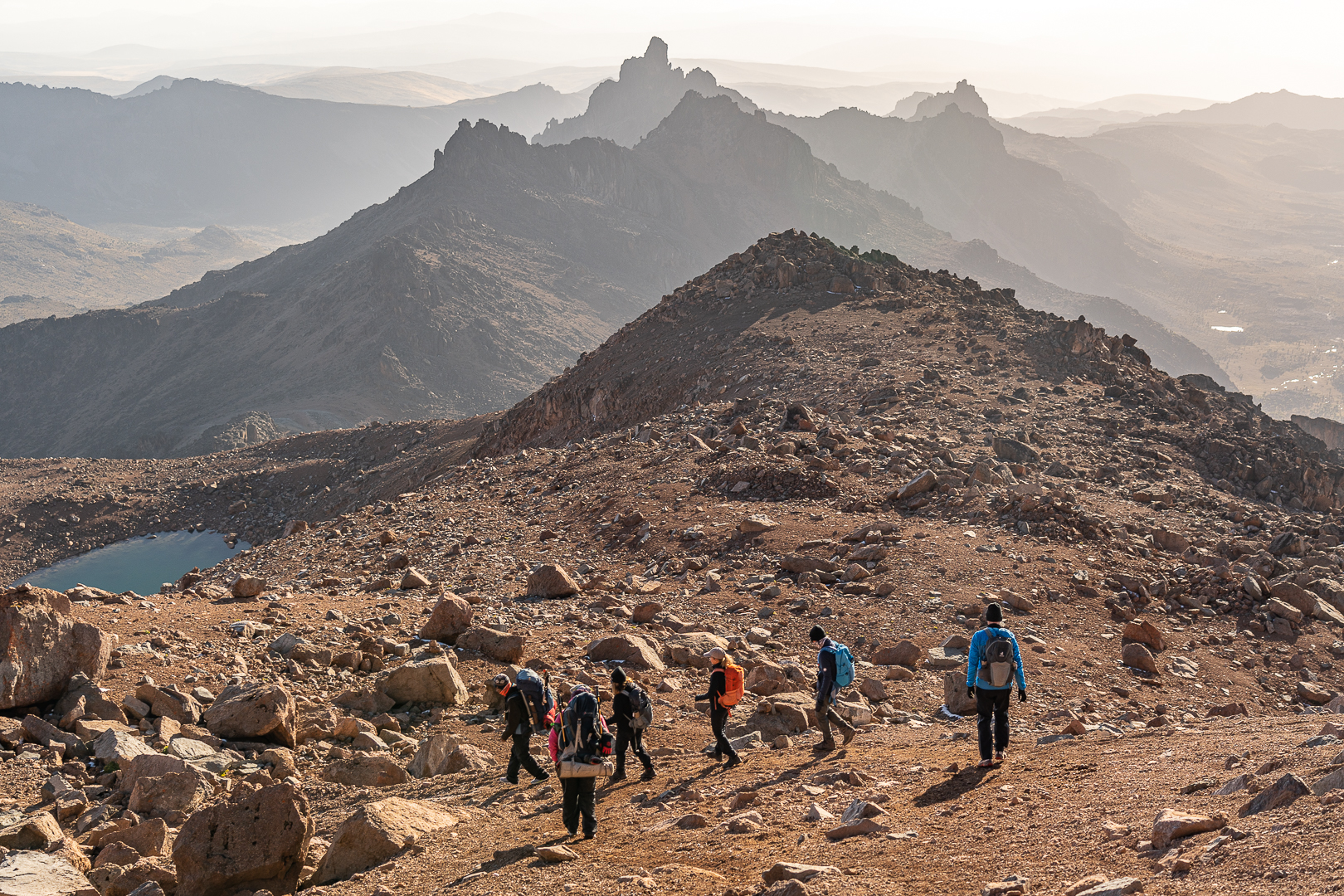
Climbing Mount Kenya is more than reaching a summit. It is a journey into the wild heart of East Africa, where raw landscapes, solitude and challenge come together. Starting in Nairobi, the expedition moves to the remote Rutundu cabins, perched by a high-altitude lake and surrounded by alpine heath. Here you slow down, acclimatise and step into the rhythm of the mountain.
The route is striking and varied, with misty forests, rocky ridges and vast views across the continent. You can choose between the non-technical peak of Point Lenana at 4,985m or the alpine rock summit of Batian at 5,199m. Lenana is a serious high-altitude trek with stunning panoramas. Batian is a multi-pitch climb that is exposed, demanding and deeply rewarding. In both cases, you move with purpose, supported by expert guidance and a strong team spirit.
After the ascent, the journey continues at The River Camp in Laikipia, where private safari drives, wide skies and quiet moments provide space to reflect. With leadership from Jay Morton and the support of a world-class team, this expedition is not only about climbing a mountain but about reconnecting with yourself in one of Africa’s most powerful landscapes.
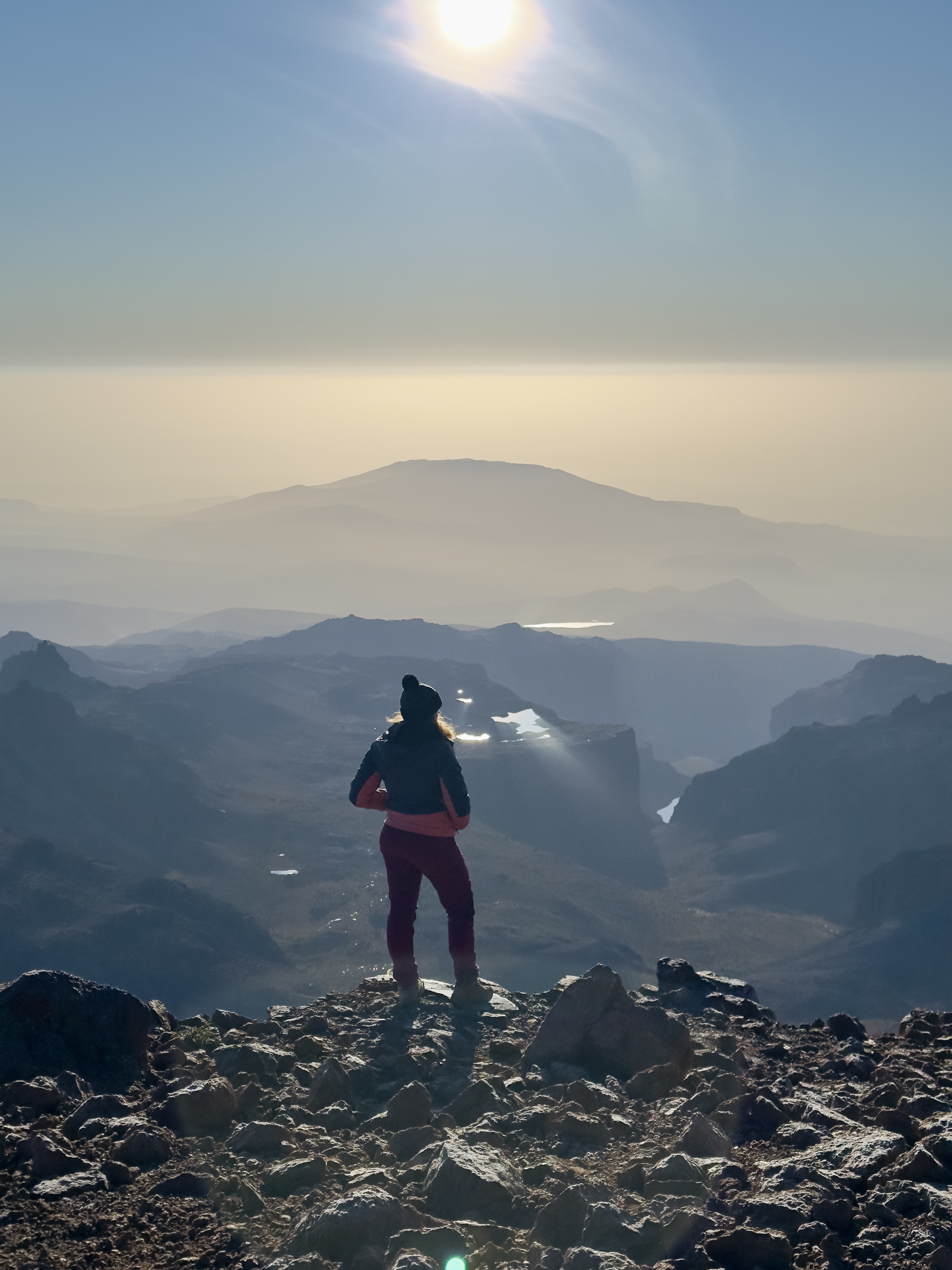
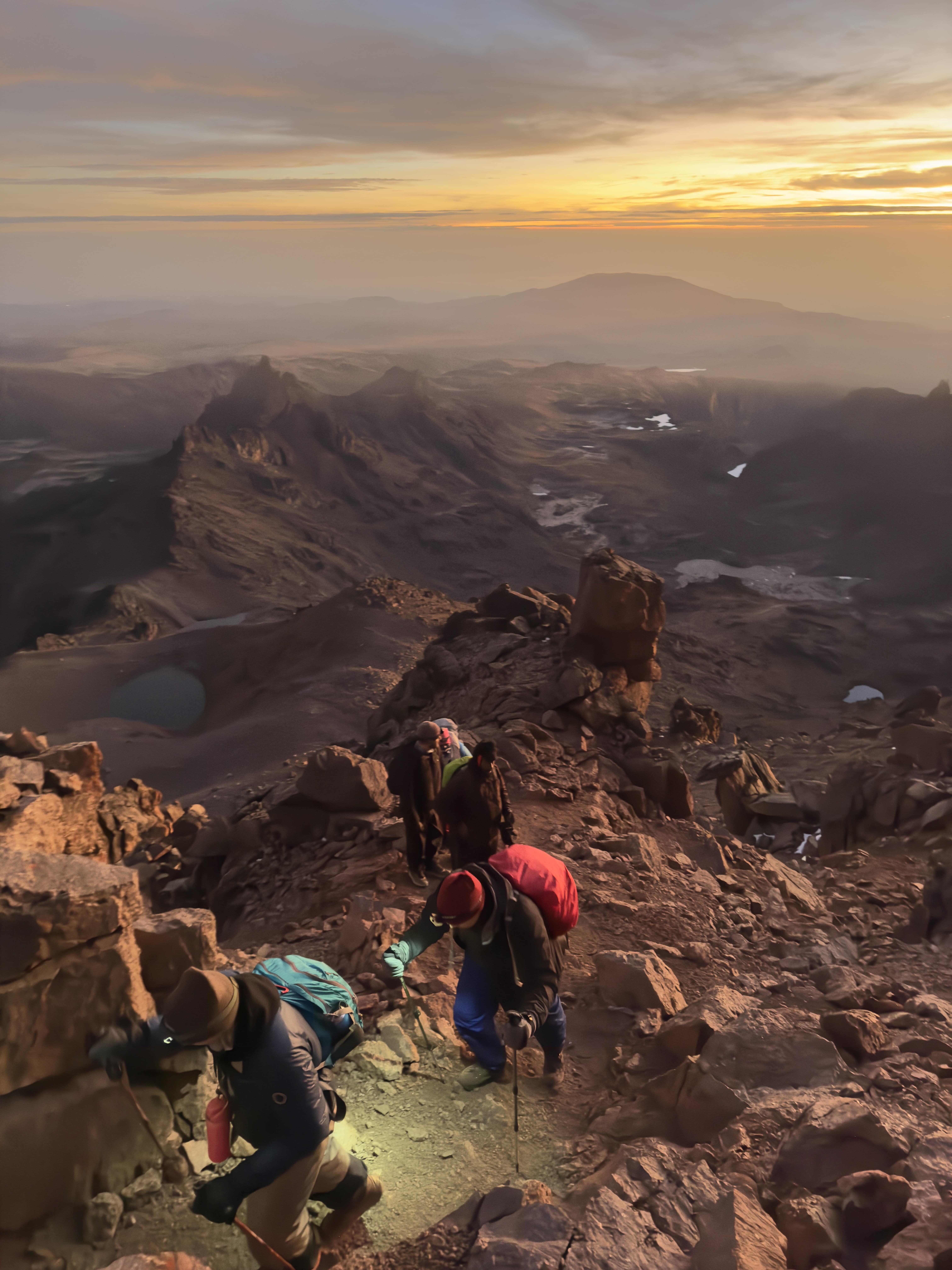
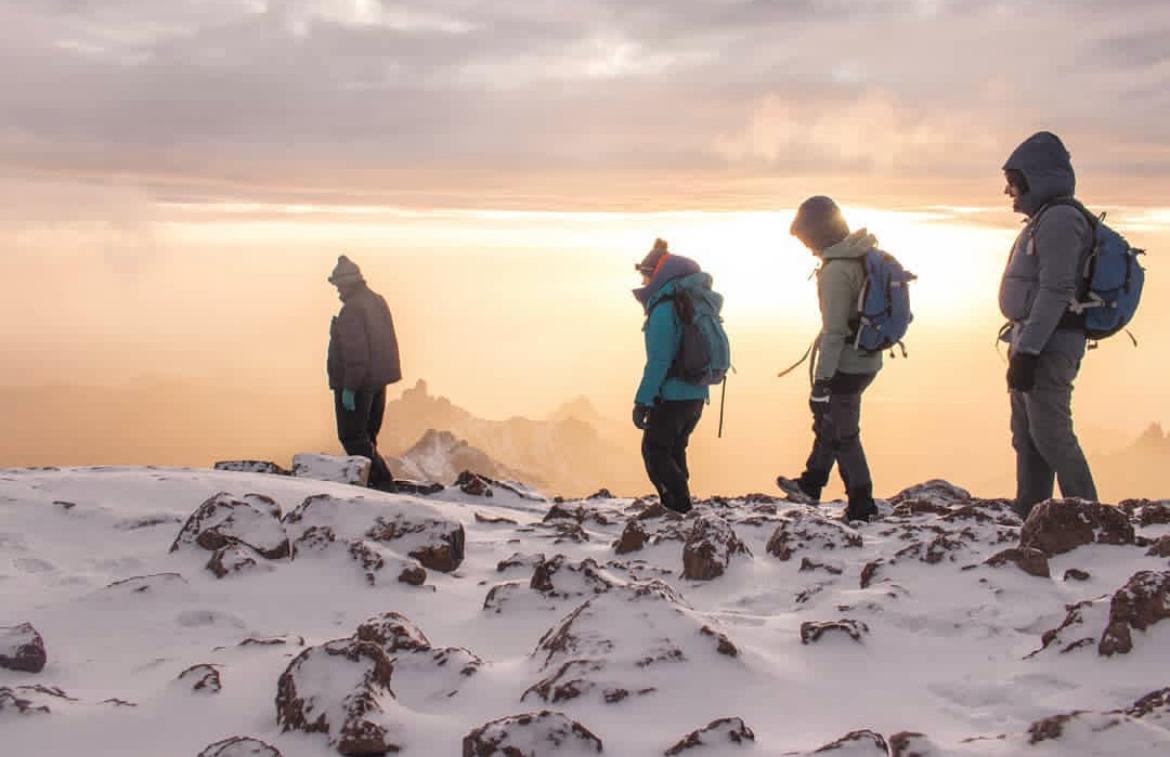
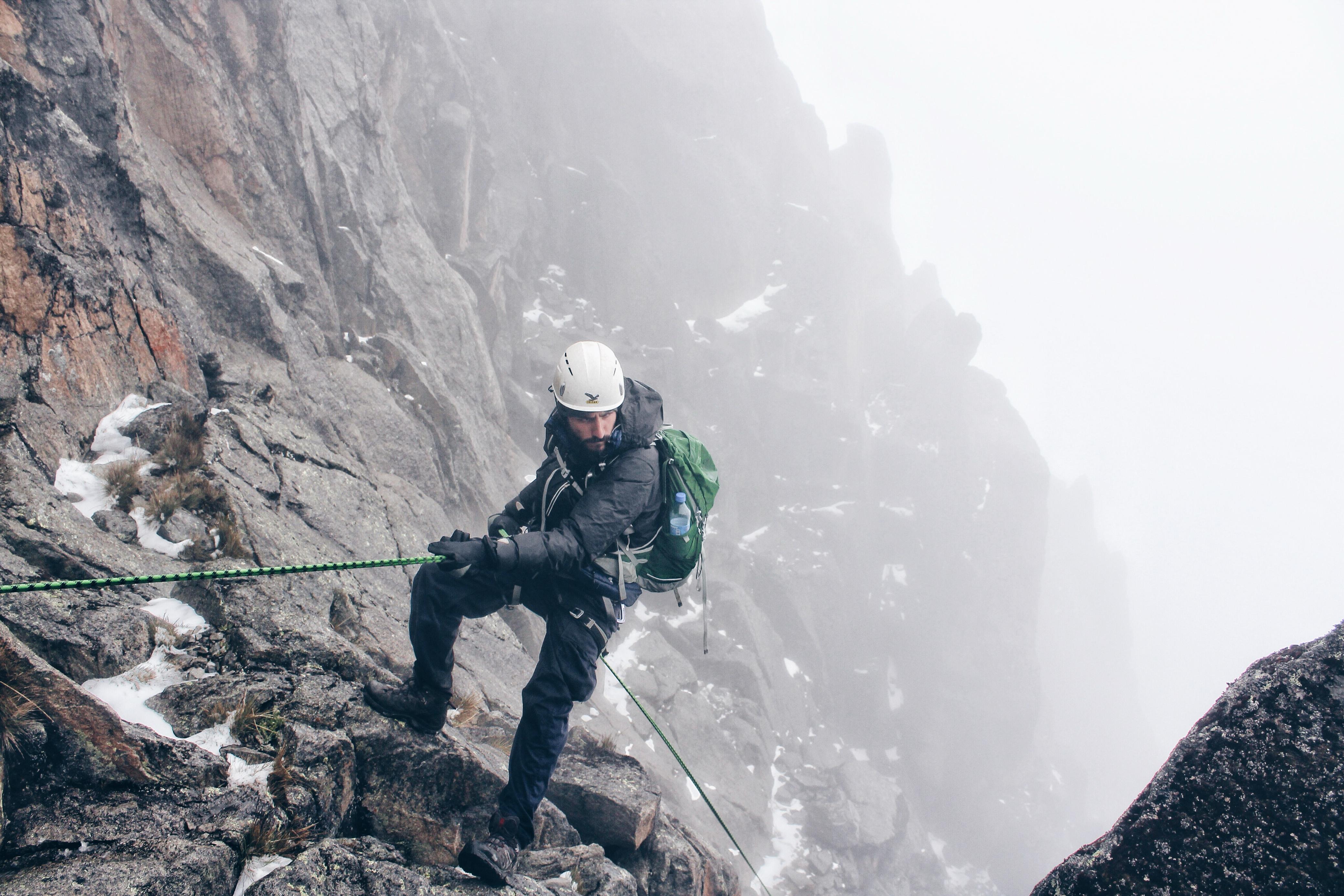
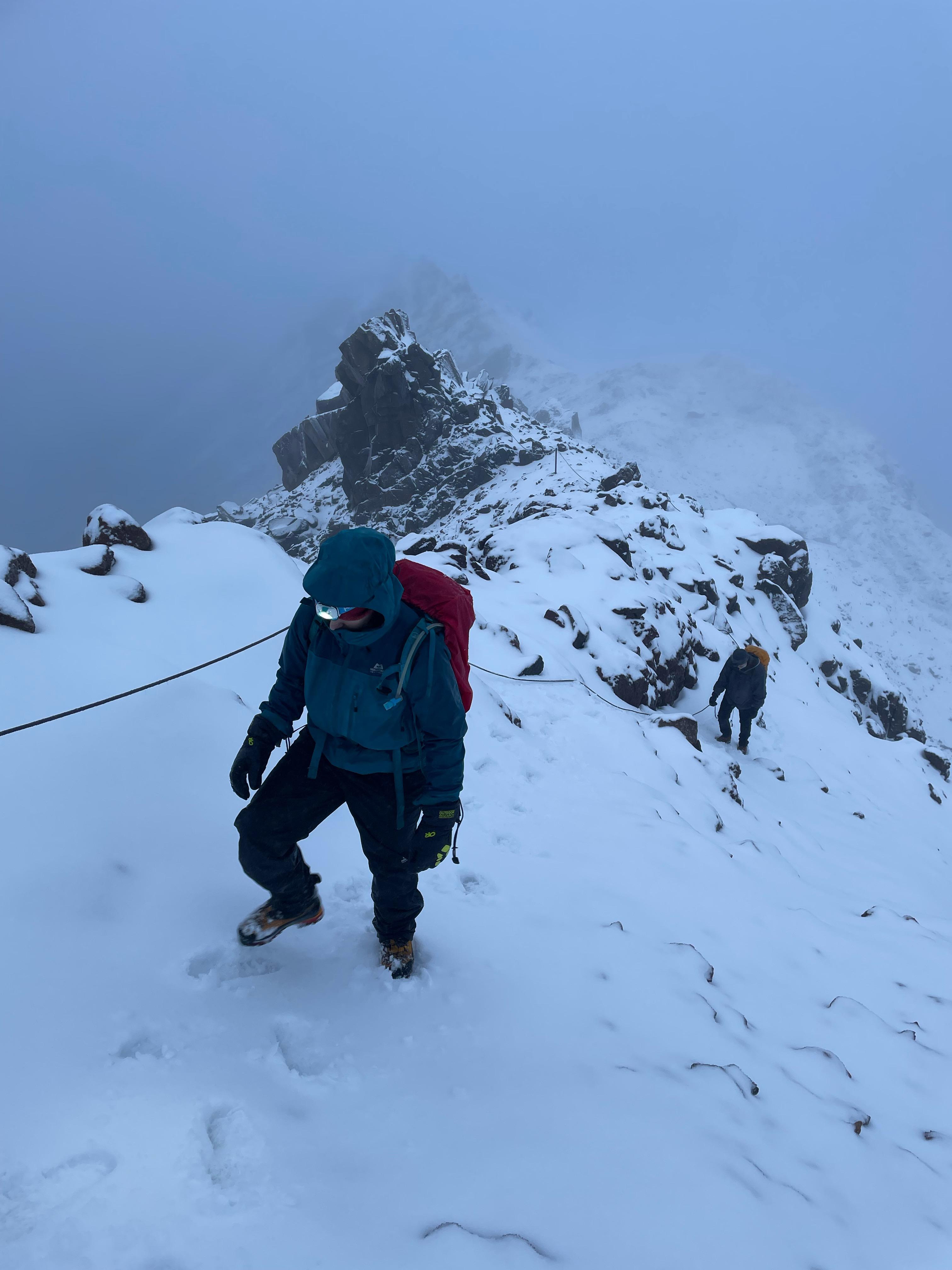
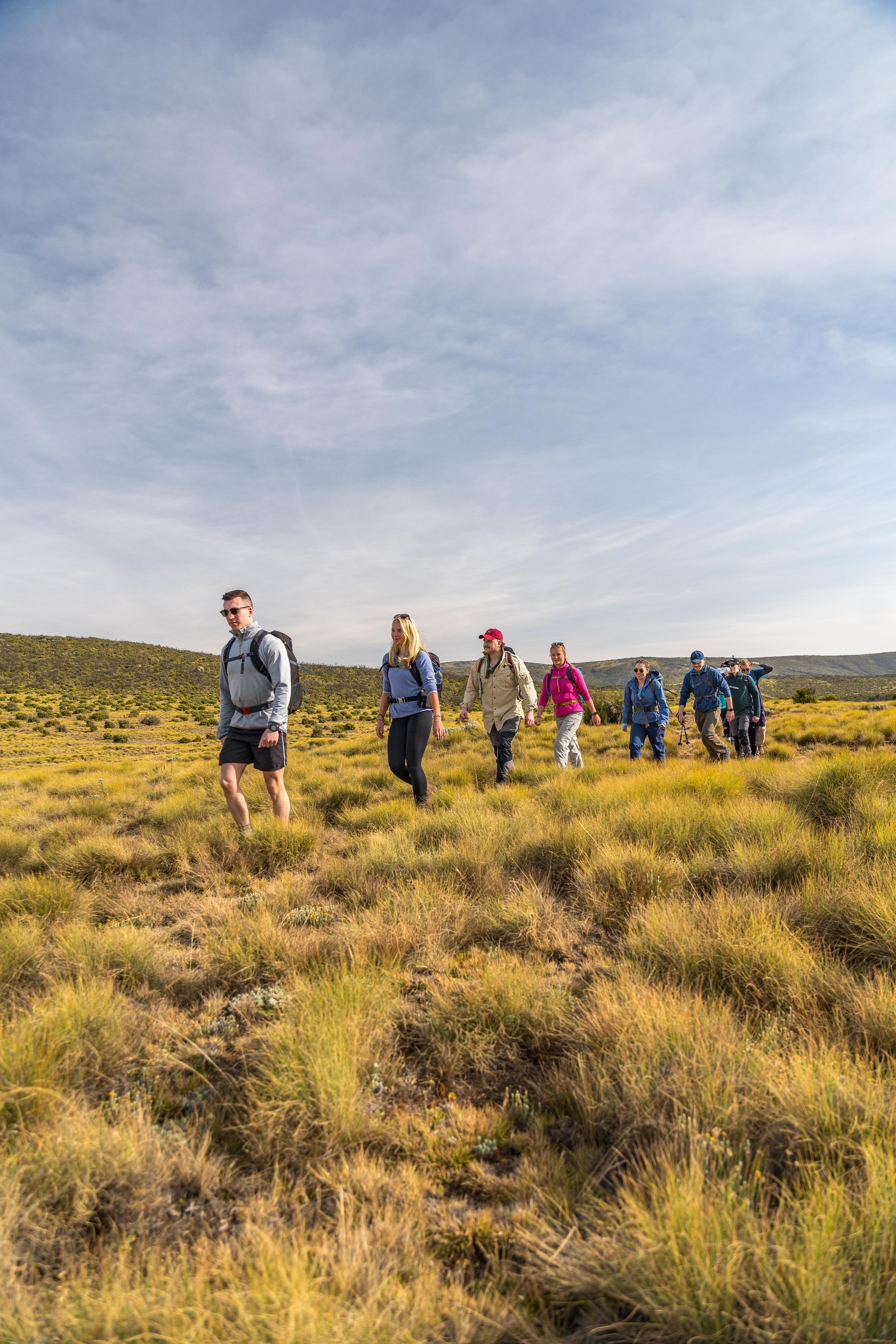
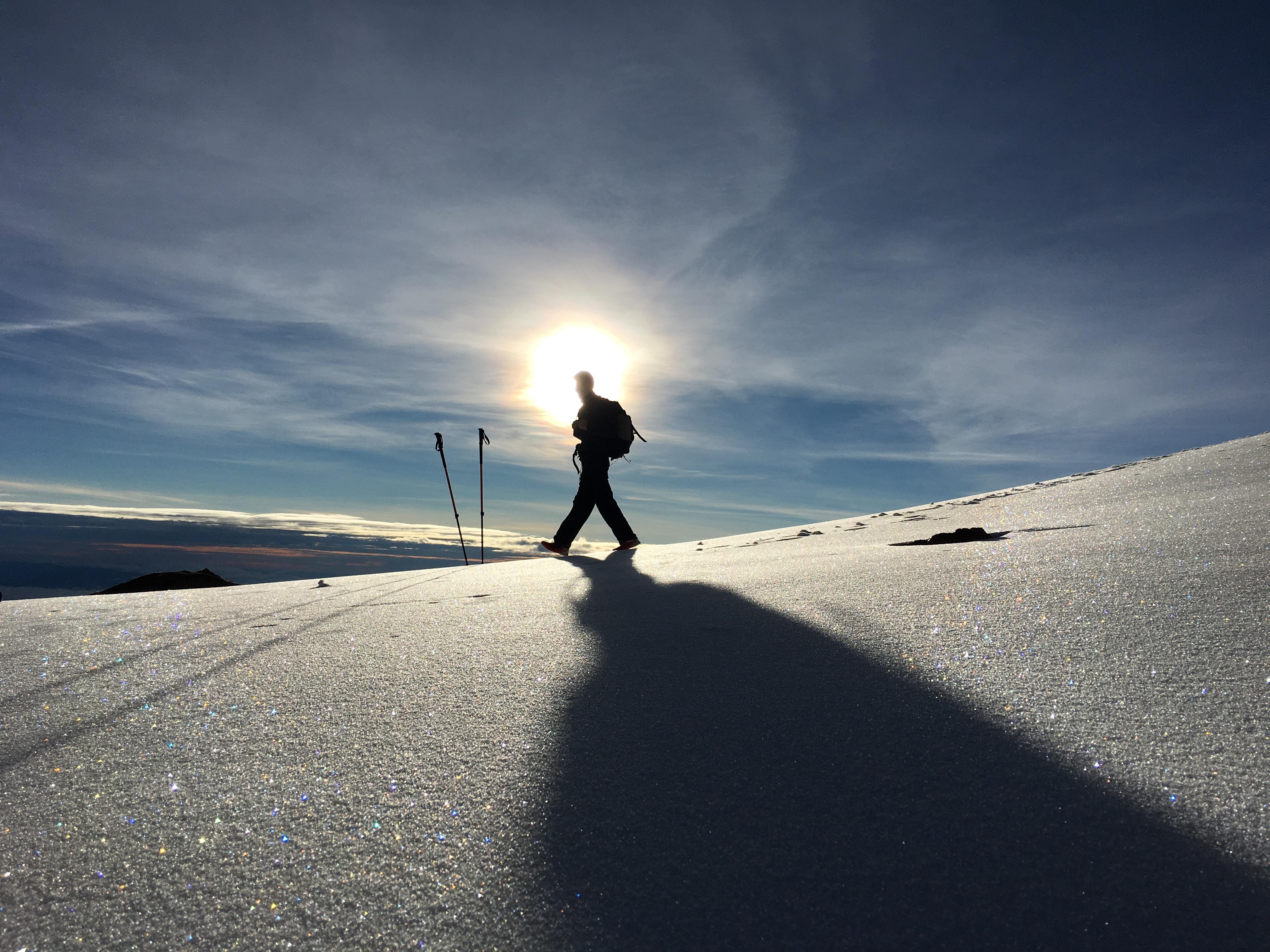
Climbing Mount Kenya, Africa’s second-highest peak at 5,199 meters, is a rare and unforgettable expedition. It combines dramatic alpine landscapes, rich cultural heritage, and a true sense of wilderness.
Whether you aim for the trekking summit of Lenana or the exposed alpine climb to Batian, the journey tests physical endurance, mental focus, and personal determination. Fewer crowds and a remote setting make this mountain a deeply immersive experience.
Pristine trails, glacial valleys, and sweeping views reward those who venture here, offering the immense satisfaction of standing high above the African plains after taking on one of the continent’s most iconic and demanding peaks.
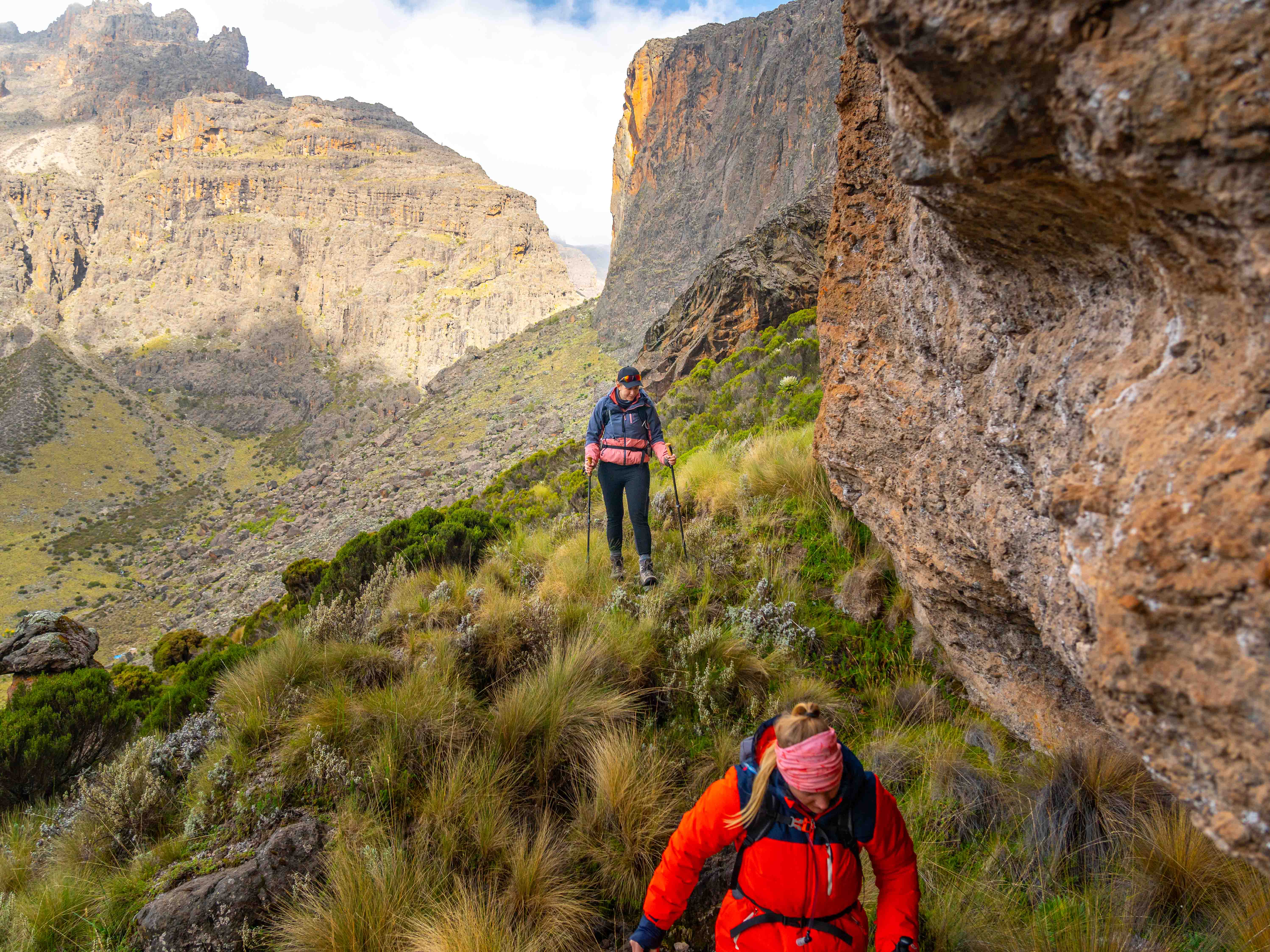
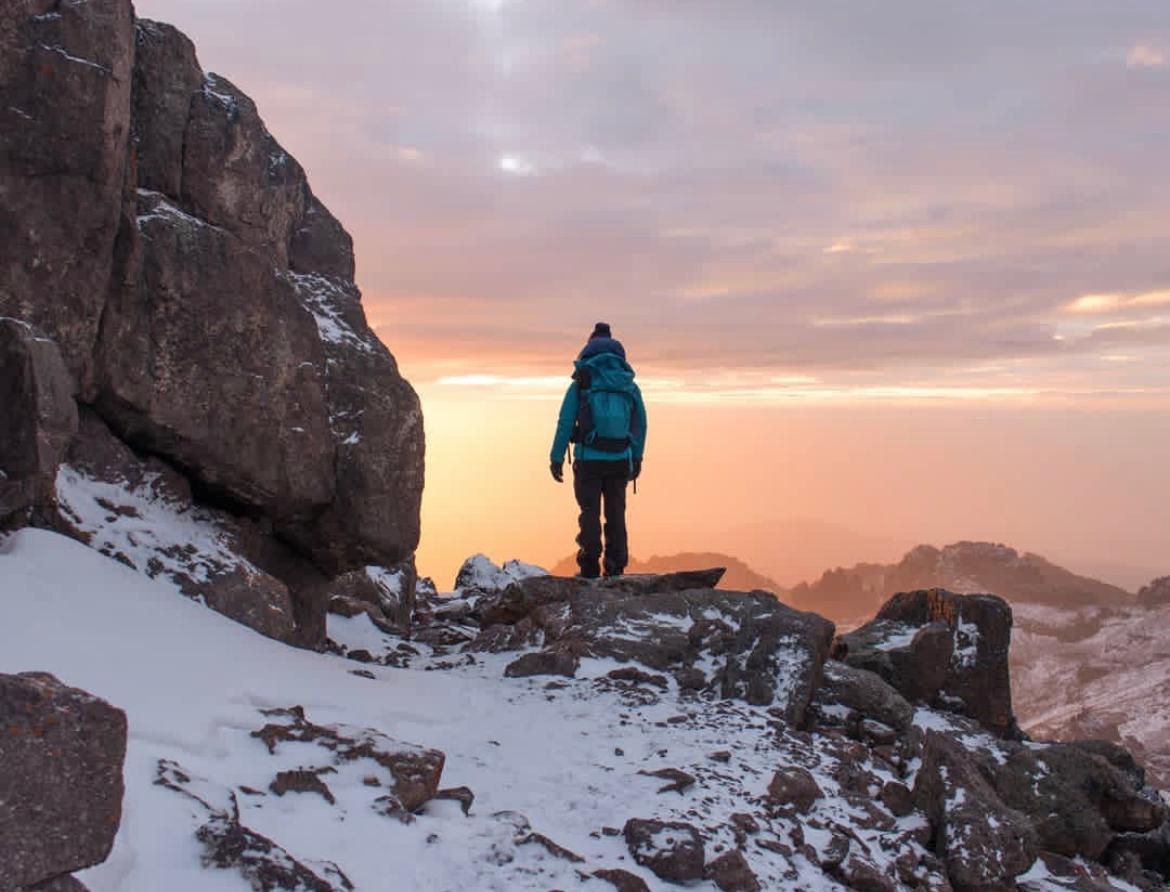
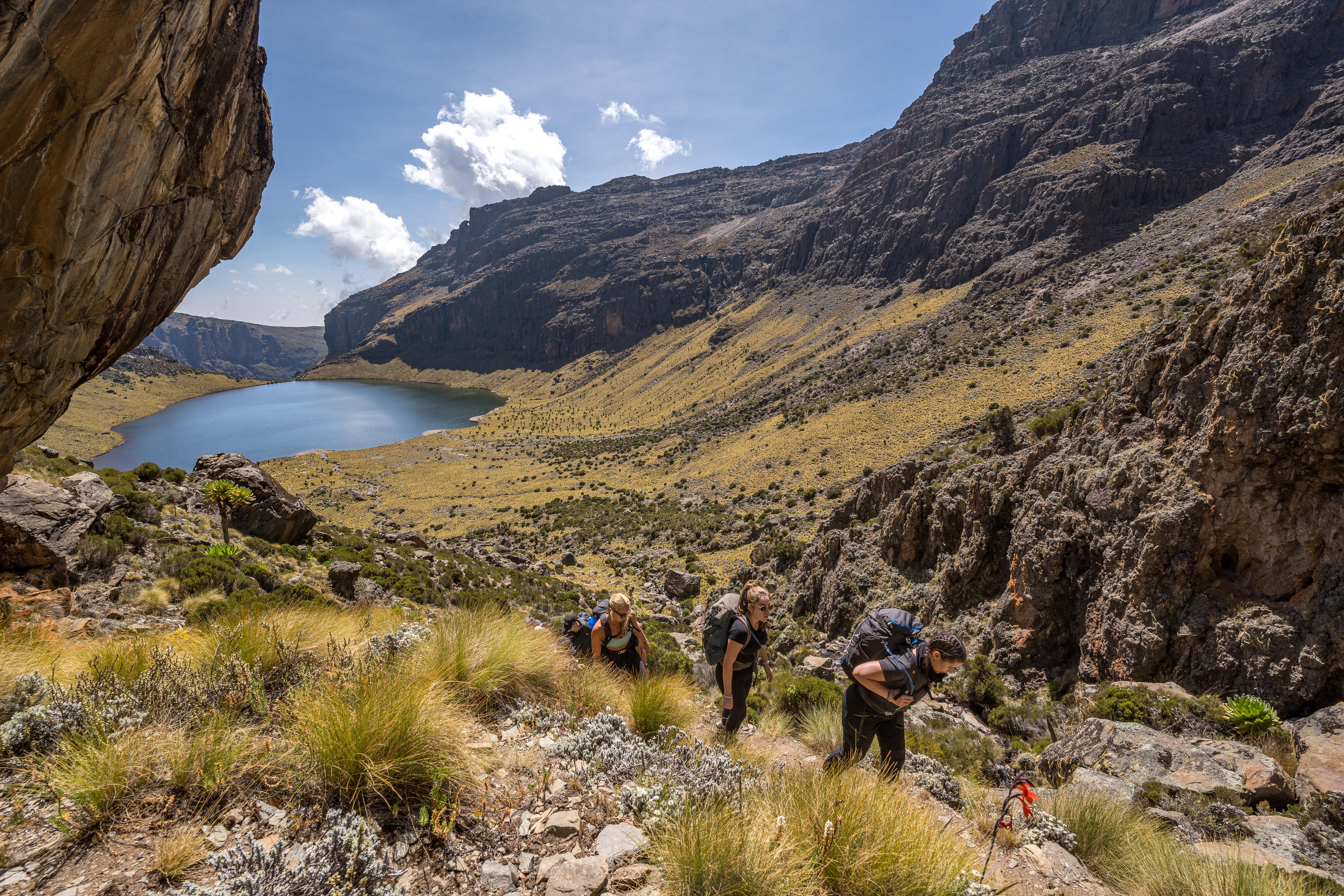
Base Layers
2–3 moisture-wicking thermal tops
2 pairs of thermal bottoms
Mid Layer
Fleece jacket or pullover
Insulated softshell jacket
Outer Layers
Waterproof, breathable hardshell jacket with a hood (GORE-TEX or equivalent)
Waterproof trousers
Insulated Layers
Down jacket (suitable for high-altitude conditions)
Insulated trousers
Trekking Clothes
2–3 pairs of trekking pants (quick-drying)
Underwear: Multiple sets of sports underwear (merino preferred)
Gloves:
Lightweight gloves for trekking
Insulated gloves or mitts for summit day
Headwear
Warm beanie or fleece hat
Neck gaiter or Buff
Baseball cap or sun hat
Footwear:
Sturdy, waterproof trekking boots (broken in before the trek)
Mountaineering boots (for Batian summit)
Climbing shoes
5–6 pairs of moisture-wicking trekking socks
1–2 pairs of warm socks for summit day
Sandals or sturdy flip-flops for camp use
Climbing Gear:
12-point crampons (compatible with your climbing boots)
Climbing harness
Climbing helmet
2x open gate carabiners, 2x screw gate or triple-lock carabiners
Sleeping Gear:
4-season sleeping bag (comfort rating of -20°C / -4°F minimum)
Sleeping bag liner (for added warmth)
Inflatable sleeping mat
Foam sleeping mat
Backpacks & Bags:
Daypack (30–40L) for carrying essentials during the trek
Large duffel bag (provided by the trekking company for porters)
Accessories:
Mountain sunglasses
Headtorch with spare batteries
2x 1L water bottles with insulation pouch and/or hydration bladder
Buff or neck gaiter for dust and cold
Pee bottle or Shewee for women
Insulated mug
Knife or multitool
Spoon
Thermos (optional)
Spare clothes for downtime
Trekking Gear:
Trekking poles (optional)
Toiletries & Personal First Aid:
Personal toiletries (biodegradable where possible)
Sunscreen (SPF 50+) and lip balm with UV protection
Hand sanitizer and wet wipes
Personal first aid kit (include altitude medication, blister care, and any prescriptions)
Lightweight travel towel
Personal & Optional Items:
Camera or smartphone with extra batteries
Lightweight book or e-reader
Earplugs and facemask
Battery pack
Portable solar charger (optional)
Hand warmers (optional)
Note: Ensure all gear is of good quality and tested before the trek, especially boots, backpacks, and clothing. If you have questions about any items, feel free to ask for guidance!
Snacks (energy bars, nuts, dried fruit, jerkey, chocolate, etc.)
Electrolyte tablets or powders
Passport (with necessary visas and permits and at least six months left until expiration)
Cash (for tips, snacks, and souvenirs)
Travel and high-altitude, helicoper rescue and repatriation insurance
Correct travel plug adapter
All internal transfers and domestic flights, including transport between Nairobi, Rutundu, Mount Kenya, and The River Camp, are covered. Accommodation includes one night in Nairobi, stays at Rutundu Cabins and high mountain camps, and two nights at The River Camp safari lodge. All meals are provided throughout the expedition, with full board during the safari and a variety of fresh, nourishing food. Drinks, including soft drinks, beer, house wine, and spirits, are included at The River Camp. The expedition features private game drives, guided walks, and park entry fees in Laikipia, along with qualified mountain guides, local support staff, and all required technical climbing equipment for Batian ascents. Guided acclimatisation treks, laundry at The River Camp, and all permits, park fees, and summit logistics are also included.
International flights, visas, passport fees, and any required travel documentation are the responsibility of each participant. Airport transfers not listed in the itinerary, personal trekking or climbing gear, and comprehensive travel insurance (including high-altitude and emergency evacuation cover) are not included. Meals and drinks before or after the expedition, personal expenses such as laundry, souvenirs, or spa treatments, and tips or gratuities for guides and staff are also excluded.
If you cancel your trip, deductions will be made from your advance payment to cover allocated costs. Charges are: 90+ days before departure:
Full refund of deposit 61-90 days:
70% refund of deposit 46-60 days:
50% refund of deposit 31-45 days:
No deposit refund + 30% of total trip cost
30 days or less: 100% of total trip cost
All cancellations must be submitted in writing (email or letter) within the notice period.